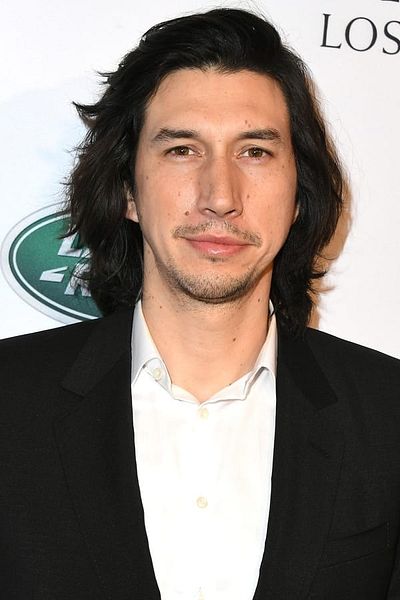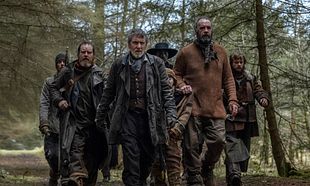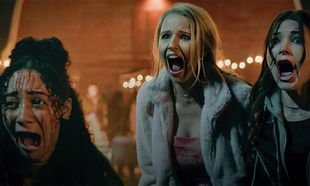Newly married, Patrizia Reggiani (Lady Gaga) and Maurizio Gucci (Adam Driver) are drawn into the family business - the fashion brand Gucci - by his uncle Aldo (Al Pacino) and his father Rodolfo (Jeremy Irons). As Maurizio and Patrizia move to take control of Gucci, they begin to sideline both his cousin Paolo (Jared Leto) and his father and uncle. But the family infighting soon becomes marital infighting, setting the stage for a murder plot involving Patrizia, a psychic (Salma Hayek) and two hitmen...
Watching 'House of Gucci', it's kind of baffling to think that the director behind the camera who is orchestrating this glorious madness, luxuriating in the gauche new-money tackiness, allowing Jared Leto to channel an Italian accent reminiscent of Super Mario, is none other than Sir Ridley Scott. This is the director of 'Blade Runner', a sci-fi masterpiece about the intrinsic quality of humanity in a world of artificial life, and 'Gladiator', which made audiences believe an Australian rockabilly singer could play a Roman general-turned-slave warrior. This time around, Scott has an Italian-American power-pop singer, two intense Method actors in Jared Leto and Al Pacino, and he's even got Jeremy Irons in there vamping it up.
In 'House of Gucci', you get the sense that each of the actors are appearing in vastly different movies and while that disharmony might not be intentional, it serves a purpose. Adam Driver is icy as Maurizio Gucci, perfectly cast as Jeremy Irons' equally cold-shouldered son. Together, they're in a Merchant-Ivory movie about distasteful matters of family finances. Lady Gaga and Jared Leto, however, are starring in a lavishly-produced episode of 'Arrested Development' with every single Italian stereotype you can think of. Jared Leto, in particular, is a physical manifestation of the Italian hand gesture emoji while also looking like George Bluth. Al Pacino saunters between these two movies, delicate and gentle one minute, dazed and confused in an underground car park with his balding, bumbling son the next. You can almost hear Ron Howard's narration over one scene involving a scarf and some savagery by Jeremy Irons' character.
Where 'House of Gucci' loses its glint is in its runtime. At over two and half hours, it has some problems with what it chooses to give importance and what it indulges for no real reason. Tertiary characters like Tom Ford are brought in for the sake of historicity but ultimately leads nowhere, not to mention an undeveloped strand about fake Gucci products. Still, it's a movie about going too far and never knowing when is enough, so why should the movie itself be any different?
The script by Becky Johnston does drive at the old money/new money divide, and the idea itself that it's all ultimately a falsehood, but Ridley Scott manages to balance these ideas with telling such a salacious story. There are flashes of his keen eye for design everywhere, whether it's in the marble-covered apartment Maurizio lives in the waning years of his marriage or the chintzy golden-trimmed storefronts that Aldo Gucci parades around. Yet, into these tasteful choices of design, a script that keeps the story on the rails and moving towards the inevitable conclusion, you have the cast firing off in any number of directions, banking between outright comedy and farce one minute, and finely tuned drama the next.
They're all terrible people, nobody is redeemable, some of their outfits look tacky and gauche, and it's all such lurid fun seeing them pull each other apart.



















































































